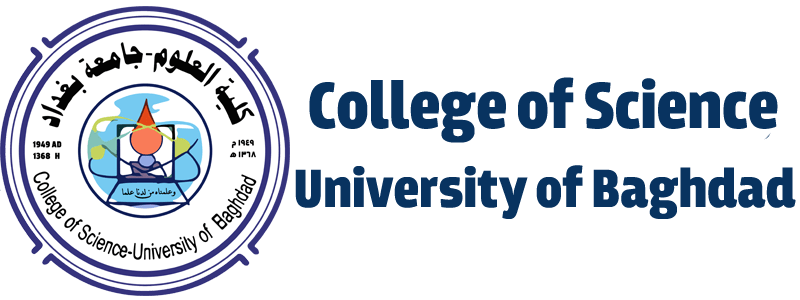Acceptance input
Scientific departments are selected according to the averages obtained by students in the admission year for preparatory studies for the scientific specialization only, in addition to desire.
The results of admission to the scientific departments appear after conducting a competition between students according to rates and desire, and students must read the guide before filling out the selection forms.
Certificate granted by the college ( learning outcomes)
The college awards bachelor’s, higher diploma, master’s and doctoral degrees in exact and pure sciences after the student completes the study of the prescribed curricula and within four years according to the scientific departments of preliminary studies, one year for higher diploma, two years for master’s and three years for doctorate. Noting that the academic system in the college is a semester system that consists of two semesters.
Learning Outcomes
-
Achieving excellence in education and scientific research in the fields of biology, physics, chemistry, mathematics, earth and computer science, biotechnologies, astronomy, space, remote sensing and geographic information systems.
-
The optimal use of modern technologies in education and scientific research.
-
Applying an advanced and appropriate methodology to verify the quality of performance and the efficiency of the outputs of the scientific departments programs of the college.
-
Providing a suitable environment for education and scientific research.
-
Attracting distinguished faculty members, researchers and students.
-
Building bridges of communication with distinguished local and international scientific communities.
-
Applying advanced training programs to raise the skills of graduates in the areas of specialization of the college.
Specifications of college graduates
Department of Biology Sciences and Biotechnology
A student who graduated from the Department of Life Sciences can be described as follows:
1- A student who has completed his academic studies in biomedical sciences and obtained a bachelor’s degree in sciences – life sciences. And who possesses detailed and accurate specialized information in his science so that this information enables him to occupy one of the jobs or positions that qualify him to occupy this aspect of applied sciences.
2 – Bachelor’s degree in Science – Life Sciences. From his studies he gained extensive experience and scientific and technical information that has applications in the field of medicine, public health, agriculture, food industries and general biological knowledge so that this information enables him to occupy and practice a profession related to his specialization with complete success.
On this basis or descriptive concept, a life sciences graduate should have the following knowledge.
# To have extensive, detailed and accurate information on the medical, health, agricultural, food industries, and environmental and natural systems.
# To have extensive knowledge of biological, genetic and life concepts and laws in general.
To be able to analyze, distinguish and accurately diagnose in laboratory vital areas.
Chemistry Department
After the student finishes his studies in the department, he will be able to:
-
Applying the concepts of chemistry in its various branches, organic, inorganic, analytical and physical, theoretical and scientific.
-
Students’ knowledge of the basics of practical application of chemical analyzes and the ability to deal proficiently and responsibly with laboratory tools.
-
Students’ knowledge of chemical analysis devices and how to deal with them.
-
Knowing the sources of chemistry and studying its various applications in drawing chemical formulas and using modern programs.
-
Develop analytical thinking skills and the ability to analyze and interpret results and evaluate inferred information.
-
Achieving the principle of integration between information, goals and objectives.
Physics Department
-
Continuity in higher education leading to master’s and doctoral degrees.
-
Work in research centers and universities.
-
Work in the public and private education sectors as a teacher of physics.
-
Work in hospitals.
-
Work in the mineral wealth.
-
Work in the ministries of energy.
-
Work in agricultural centers, in factories, and in environmental protection organizations.
-
Work in various scientific research centers.
-
Work in electric power plants and renewable energy.
-
Work in meteorological centers.
-
Work in different water stations.
-
Work in the petroleum sector.
-
Work for standards and metrology institutions.
-
Work at border centers to monitor radioactivity.
-
Work in several industries such as plastic, steel, glass, power cables, various materials, and others.
